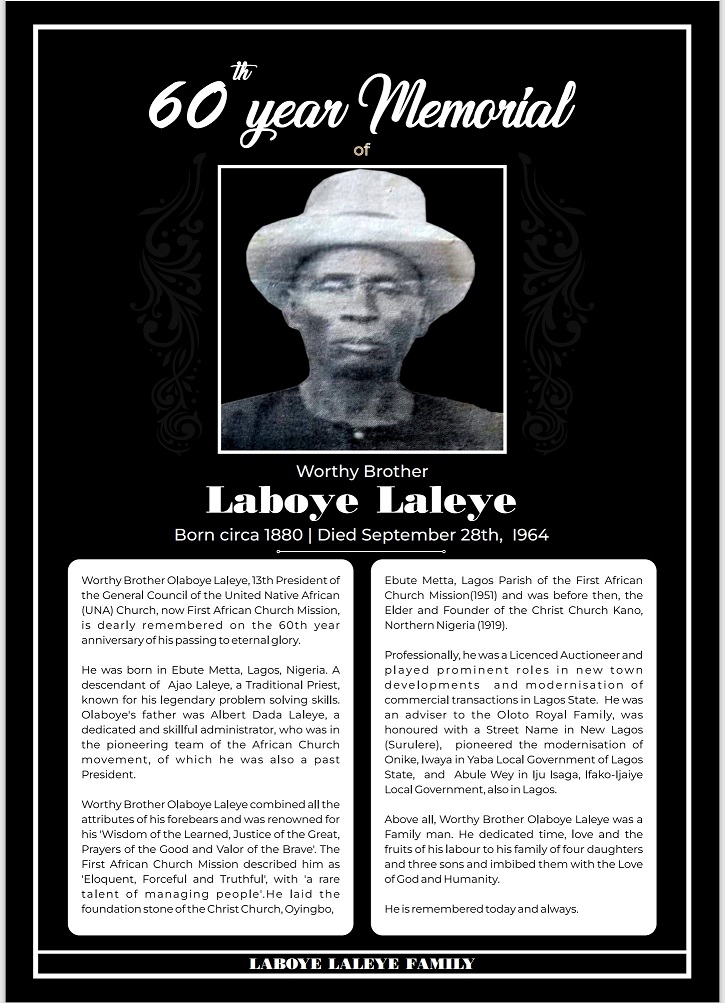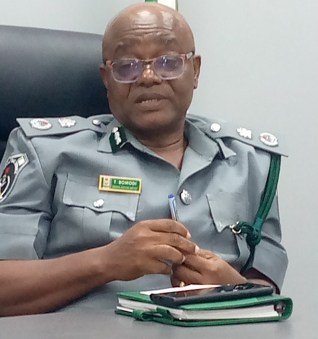Uncategorized
CVFF: Ship owners’ accuse Amaechi of hijack
CVFF: Ship owners’ accuse Amaechi of hijack
By Eguono Odjegba
Facts emerging have hinted of secret moves allegedly by the Minister of Transportation, Rt. Hon. Amaechi Chibuike to hijack the administration of the Cabotage Vessel Financing Fund, CVFF, without the knowledge of the presidency and National Assembly.
But ship owners upon getting information about the ministry’s reported attempt have described the move as illegal, politically motivated and selfish; and have vowed to resist the development, Pinnacle Time learnt.
Top authoritative sources said the move have reached an advanced stage with the opening of a special CVFF account with Fidelity Bank, and a directive to Nigerian Maritime Administration and Safety Agency, NIMASA, to move USD50million from the accrued Fund into the new account. The directive to create the special account is believed to have been given without presidential or parliamentary approval, contrary to the provisions of the CVFF guidelines, as established under the Coastal and Inland Shipping (Cabotage) Act, 2003“
“Section 3 of the CVFF guidelines provides that the fund “shall be utilized by the Agency to offer financial assistance, create access to funding by financial institutions with the sole aim of increasing indigenous ship acquisition capacity.”
The Act empowers NIMASA to disburse the fund to successful applicants “subject to the approval of the Minister of Transportation.”
Also Section 7.5.1 of the guidelines reads: “Applications for credit facilities under this Fund should be routed to NIMASA through any of the participating PLIs. Upon receiving an application for a loan request or guarantee under this Scheme, NIMASA shall determine the applicant’s or operator’s eligibility to access the Fund. This shall be evidenced by a duly authorized certificate issued by NIMASA to the applicant and the certification shall be duly notified to the PLIs by NIMASA. NIMASA may disapprove the loan request or guarantee based on the assessment conducted in line with this Guideline and sound commercial principles.
Stakeholders have expressed misgivings and reservations about the takeover plot, which they say could lead to the politicization of the disbursement and deprive genuine ship owners, who are not just the primary objective of the Fund but sole contributors into the fund; and who have waited for twelve years for the disbursement.
The Nigerian ship owners have also expressed frustration over their inability to access the Cabotage Fund, which is believed to have accumulated to more than USD200million since inception in 2004. After repeated failed promises by successive and present government to disburse the fund failed, Amaechi in December 2019 announced that the Federal Government had approved the disbursement.
The Minister, who disclosed this at the 2019 Stakeholders Appreciation Night organized by the Nigerian Shippers’ Council (NSC) said that he would be meeting with relevant government agencies under his ministry as well as indigenous ship owners to work out the modalities for disbursement.
Although the Minister had assured stakeholders that the CVFF would be disbursed by January 2020, he failed to keep his word, and in roundabout manner, chose to set up a committee in January to “work out modalities” for the disbursement of the fund.
Addressing newsmen shortly after a closed door meeting with stakeholders including indigenous ship owners in Lagos, Amaechi said the committee would determine the fund interest rate, thus taking the whole process backwards.
His words: “What we have agreed is to set up a committee chaired by the DG of NIMASA with other stakeholders as members that will come forward with proposed guidelines which the Minister will take to the National Assembly.”
“It is the committee that will determine whether it will be single digit or not. The essential element in it is that the responsibility will be transferred to the lending institutions so nobody will just walk away with the fund. It means that you must be held responsible for the funds that are accrued to you. That risk will be borne by the lending institution. The lending institution will give the guidelines necessary for borrowing the money so if you don’t have it, you can borrow the money.”
“There must be rules by which anybody will qualify to borrow the money. After that you approach the lending institutions that in turn will put their own expectations in place because if you just allow people to go and take the money and walk away, we will not get it back.”
“The idea is to enhance the development of the maritime industry and to do that, people must borrow and return for others to be able to borrow and that will grow the economy.”
Members of the committee include Mrs. Margaret Onyema-Orakwusi; a former Director General of NIMASA Temisan Omatseye; and former President, Nigerian Ship-owners Association, NISA, Aminu Umar, among othersF
Fielding questions from maritime journalists on the controversial CVFF last week, Director General of NIMASA, Dr. Bashir Jamoh said:
“On the issue of Cabotage being the weakest score point in NIMASSA, I like to agree with you but the critical point of Cabotage is one, ownership. Today in Nigeria I don’t know how many people have the money to float new ships to participate in the Cabotage Act. Our ship registration have a lot of bottlenecks, so many people don’t want to register using our flag“
“The Cabotage Act provides certain guidelines, if you don’t have the money; this is what you should do. If you don’t have the ownership, this is what you should do. If you don’t have the manning or registration, this is what you should do. We are doing our best to activate the Cabotage Act; we are now reviewing the Act.”
“You see when you draw up a policy, through the implementation you will observe a lot of lapses and loopholes, and you have to reengineer the policy. We are now at the verge of reengineering the Cabotage Act, because we have spent over ten years implementing the policy. So the Act is presently undergoing a review“
“At some point when we wanted to disburse, the issue of single treasury account, TSA, policy came up and created bottleneck. So the Honourable Minister of Transportation is pursuing the review of the CVFF. I have been appointed the chairman of the CVFF Disbursement Committee by the Minister of Transportation. We are working to disburse the CVFF, maybe before October; we hope to be able to disburse the first leg of the fund to beneficiaries.”
This is even as a member of the committee revealed that no meeting has been held since its inauguration. While stakeholders and ship owners appeared committed to opposing attempts to derail from the Fund disbursement processes and laid down rules, it is not clear what might eventually happen, since the federal government appears to have lost all moral feelings about the Fund and all manners of intrigues it has passed through over the years.
Describing the alleged move to create a special account for the Fund as illegal, Founding President, Nigerian Shipowners Association, NISA, Chief Isaac Jolapamo, said it is against the CVFF guidelines, which provides that the fund should be managed and disbursed by NIMASA. Like many other ship owners, Jolapamo frowned at the manner the Fund is been treated with unwarranted secrecy and ask that the Fund be audited to ascertain how much has accrued to it since inception.
He said, “We are at a cross road as far as maritime or shipping development is concerned. Whatever they do whether it is right or wrong, I think it is time now to ask them, NIMASA, to account for all the CVFF money they have received. We are not fools. You don’t shave people’s head without asking them. Most of us have contributed immensely to that fund and I think we should know what has happened to the fund from the beginning.”
“How much have they spent from the money? The fund is hidden in so much secrecy that the people who contributed to the money do not know what they have contributed or whether it is there or not. The legal thing is that the money be kept by NIMASA. We have been paying into the account since 2006 and there is nothing anybody knows about it. We only heard of plans that they want to divert part of the fund, we don’t know the ones they have diverted even before now.”
Corroborating Jolapamo’s anxiety, former Director General of NIMASA, Temisan Omatseye, said the agency will be acting against the law if the management made any attempt to move the money to the ministry as reportedly planned.”
“There is a law and there is a process and a guideline and that guideline should be followed strictly. Any attempt to move any money from that account to somewhere in the ministry for disbursement as far as I am concern is illegal”, Omatseye said, Adding:
“These funds are ship-owners money and if ship-owners are aware of this, they should begin to make noise about it. The law is very clear on the Fund and the law said that fund is to be managed by NIMASA in line with guideline as approved by the National Assembly.”
“If the National Assembly does not put in a process that an account should be created in the ministry, what is the money being put there for? The money belongs to the ship owners so why should it be moved to the ministry? Under what law will they move the money? If this is true, then it is quite amazing and shocking to me.”
“If NIMASA move that money, they themselves are perpetrating an illegal act. Let us see under what directive the Minister will give to them to move the money and whether they are able to do that,” he said.
Also speaking on the development, erudite maritime lawyer, Emeka Akabogu, said the 2006 CVFF guidelines did not assign any role to the Ministry of Transport in relation to the management and disbursement of the CVFF.
According to Akabogu, “The purpose of the CVFF under the Act is the promotion of indigenous ship acquisition capacity for domestic coastal shipping, which is right within the exclusive remit of NIMASA. NIMASA is specifically mentioned to house the enforcement unit charged with the responsibility of enforcing the provisions of the Act by section 2 of the Act. NIMASA is also mandated to collect monies accruing to the fund under section 44 of the Act and deposit same in commercial banks.”
“The powers of the Minister under the Cabotage Act include grant of waivers, (section 11), issuance of guidelines and regulations on waivers, (section 14), licenses, (section 20), approvals, documentation, fees, vessel tender requirements and the like (section 46), in addition to making orders for the requisition of vessels (section 48). None of the powers of the Minister relate to administration of the CVFF, neither does the Ministry of Transport have any role play in respect thereof.”
“The administration of the CVFF is meant to be under guidelines proposed by the Minister and approved by the National Assembly (section 44), and the last known approval was in 2006. It is true that the Minister was reported to have set up a guidelines committee sometime this year for the disbursement of the CVFF, but any amendment of the guidelines as provided in the Act must be with the approval of the National Assembly.”
“The Director General of NIMASA is the accounting officer for the agency and will be responsible for final decisions relating to funds of the agency. He must therefore be careful and act advisedly in ensuring he does not breach the law in complying with directives of the Minister.”
Continue Reading



























